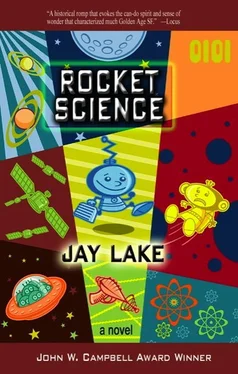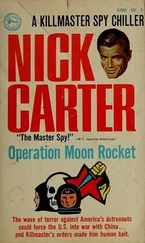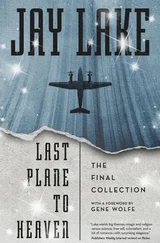But that wasn’t the right thing to do either. Anything I said to Ollie Wannamaker, or anyone else on the Augusta force, would get back to Sheriff Hauptmann within a day or two. And my confidence in Hauptmann was slipping fast. He kept acting strangely around me — nothing obvious, but enough to tip me that something was up. He was obviously working with CID to crack this Nazi thing and find the murderers of the late Captain Markowicz. Not to mention the real-live fake Captain Markowicz.
There was some angle that involved me, which was why he was looking through my notebooks. But obviously he wasn’t going to let me in on whatever was going on. Besides, Ollie had acted pretty odd when I talked to him about Floyd yesterday. Something was definitely happening around me, something that involved Dad and Floyd. It had to involve me.
That meant I was either under suspicion or I was being used for bait. I knew I wasn’t a Nazi, but the whole thing with the aircraft could be getting me in really big trouble. I still wanted to talk Floyd into turning ourselves in, but we’d been interrupted by the fire and I’d bet it would be this evening before he and I got a chance to discuss it. And then who to turn ourselves in to? There must have been an FBI office in Wichita. At this point I would much rather turn ourselves in there.
And then I’d lose the aircraft. I’d never see it again — they would haul it off to Wright Field or someplace even more secret out in the deserts of the west, and tear it apart.
I shook my head. Damnation, but that was a beautiful piece of machinery.
Even worse, if I wasn’t under any suspicion, that meant Sheriff Hauptmann really was using me for bait. I didn’t like the idea of Hauptmann hanging me out to dry in order to catch a few Nazis.
I laughed out loud at myself. My imagination was running away from me — things were bad enough with Dad and the fire at Mrs. Swenson’s boarding house. I didn’t need to conjure phantoms to make them worse. Heck, I could just go back to the beginning of the problems of the last two days and demand my envelope back from Mrs. Sigurdsen. But I figured my chances of that working out were slim. Regardless of whether the Head Librarian was one of the Nazi gang, she could probably break my neck by sheer force of character. The only reason I didn’t suspect her of beating Dad was that I couldn’t imagine her being willing to make that much noise.
Besides which, the library wasn’t open on Sundays. God-fearing folk generally went to church, while the rest of us slept in or read the paper. At least I hadn’t gone home last night. I’d probably be dead now if I had, killed in the fire or beaten by whoever set it, just the way they had beaten Dad.
There was a chilling thought.
My musings were interrupted by an odd sensation from the pocket into which I slipped the German radio handset — it was getting very warm, like the time in junior high school when Floyd had set my pants on fire. Was it the invisible German, coming back for more? He had been silent since asking me about Kansas.
I pulled the car off the road by the Whitewater River dike along the west edge of town. Augusta stretched behind me, sleepy in the autumn Sunday afternoon, except for the angry black pillar of smoke that still boiled into the sky from my destroyed home. The Whitewater flood plain stretched in front of me — willow trees, water meadows, ducks lifting off.
Fishing into my pocket, I pulled out the silvery handset. It was sufficiently hot to the touch that I dropped it on the seat. I didn’t know how much hotter it would get, and I didn’t want to scorch Doc Milliken’s leather upholstery, so I grabbed the floor mat from the passenger side foot well and laid that on the seat. I flipped the handset over onto the mat with my fingertips, blowing the heat off them afterward.
“Change of plans,” I said. This thing needed to go back to the f-panzer pronto. The heating up bugged me, but it was too small to be a bomb. I didn’t feel like I was in any particular danger. Rather, it appeared to be an electronics malfunction. Not immediately worrisome, but too much trouble to deal with here in the car. At the very least, it meant my German friend wouldn’t be bugging me any more. Maybe I could find a way to explain it to Lois after she cooled off, too.
At any rate, whatever the problem with the handset was, I didn’t need to haul this thing around the county with me. It would take some more time out of my day, but I had to take the silvery thing back to the Bellamys’ place. If it got hotter on the way, I’d deal with that. I didn’t want to submerge it in water, but at the least I could set on some open ground and wait to see if it burst into flames or something. Assuming nothing like that happened, I could drop the handset off, then go check around Dad’s place for myself.
I owed him that much.
I had to u-turn the Cadillac across Wichita Highway in order to head back through town. As I put it in gear, a high-pitched squeal gave me an instant headache. I’d never in my life heard an automobile make a noise like that. The car bucked and stalled, straddling the center of the highway.
Thank God it was Sunday morning — there was no refinery traffic, and most people were in church. And today, the rest of them were off fighting that fire. Even before I could touch the starter, it turned over on its own and the engine started up again.
That was weird. I knew quite a bit about engines from my work at Boeing, and that wasn’t possible. The engine hadn’t been dieseling, and the car wasn’t moving fast enough to restart itself. This had been the starter turning over, and starters didn’t just fire on their own. It seemed like the handset’s electrical problems were contagious.
The Cadillac’s horn started honking, echoing across the dike and the trees in the bottomland beyond. The car bucked again as I tried to switch it off — I hadn’t liked the sudden start and wanted to let everything cool down, until all the static discharge left the system or whatever was wrong had a chance to settle. Even as big as it was, I figured I could push the Cadillac to the other shoulder if need be. But now the engine wouldn’t shut off .
Then the radio came on, popping and hissing. There was another high-pitched, ear-splitting squeal. The tuner knob began to slowly turn by itself, as if an invisible hand had laid fingers upon it.
My hair prickled up, bumps rising on my arms. I wanted to leap from the car, but at the same time I was fascinated. I had never seen, or heard, anything like this. My spine shivered as the speakers wailed, the radio passing through the whole range of frequencies. Gospel music from Wichita, a news bulletin, an ad for fertilizer, a bellowing radio preacher, big band music, two different farm reports. It hit the end of its range and the knob reversed, the invisible hand starting back down again.
The radio settled down to a Negro gospel service out of Wichita. I reached for the knob, but it was stuck on that frequency. I turned the Cadillac off. This time the car died, just like it should. I pressed the starter. It cranked right up again, radio blurting back to life on the same gospel station.
Except for the radio being stuck on at the one station, the Cadillac now seemed willing to run again like a normal automobile. I finished the u-turn and headed back through town. What had made it behave this way? The engineer in me wanted to imagine weird magnetic fields, electrical disturbances in the atmosphere, but I knew that couldn’t be true. Hundreds of cars and trucks drove up and down Wichita Highway every day. Maybe thousands. Heck, it was a U.S. Highway, 54, that got long-haul traffic all the time. Somebody would have noticed if it was built over a huge hunk of magnetic ore, or an Indian burial ground, or something.
Читать дальше












